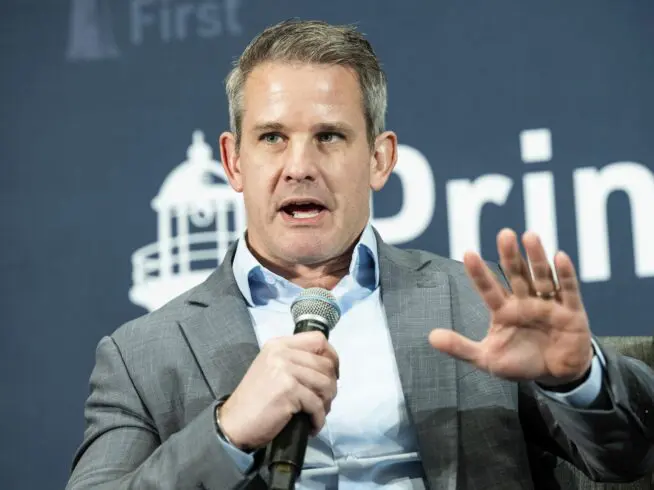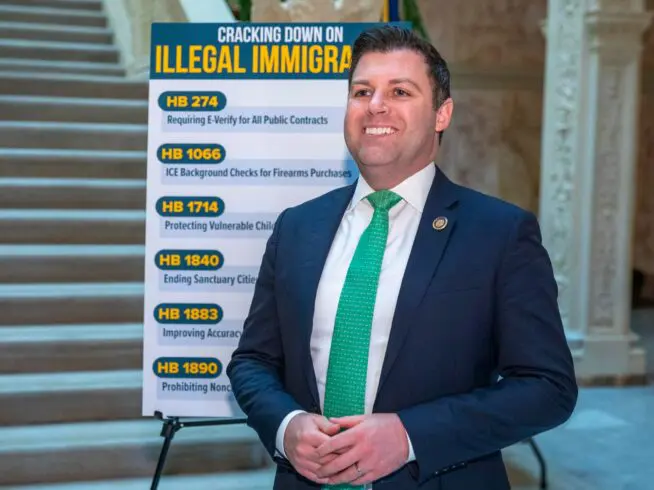Pennsylvania clinicians seek end to law that mandates only doctors can provide abortions
‘In the state of Pennsylvania, 85% of counties don’t have a single doctor providing abortion care,’ says nurse practitioner Kara Pravdo.
Pennsylvania’s advanced practice clinicians have been demanding a broader scope of patient practice for years.
These skilled nurse practitioners, midwives, and physician assistants routinely provide health exams, contraceptive care, fertility counseling, and prenatal visits, and they also manage miscarriage care. But state law requires that a physician prescribe or perform abortion services.
“The APC [advanced practice clinician] ban causes an undue burden to patients seeking abortion by limiting the amount of providers who can safely take care of patients in our state,” Kara Pravdo, a women’s health nurse practitioner in Philadelphia, tells the American Independent Foundation. “For a patient in a low-wage job with no paid time off or with significant child care obligations, this is a serious problem. These harms are not hypothetical. We see patients struggling to access care in a safe and timely manner every day. These barriers disproportionately affect patients along the lines of race, income, age, and gender identity.”
In Pennsylvania, advanced practice clinicians are required to have a written collaborative agreement with a physician in order to have prescriptive authority. Twenty-seven states and the District of Columbia offer nurse practitioners full practice authority.
In a report on a six-year study, researchers led by investigators at the University of California at San Francisco concluded that abortion care provided by nurse practitioners, certified nurse midwives, and physician assistants was as safe as that provided by physicians.
In an opinion published in December 2020, the American College of Obstetrics and Gynecology’s Committee on Health Care for Underserved Women and the Abortion Access and Training Expert Work Group said, “The pool of clinicians who provide first-trimester medication and aspiration abortion should be expanded to appropriately trained and credentialed advanced-practice clinicians in accordance with individual state licensing requirements.”
Those in favor of ending the physician-only restrictions say it would help expand access to care and reduce wait times for patients.
“Even in the state of Pennsylvania, 85% of counties don’t have a single doctor providing abortion care. And we know that advanced practice providers tend to work where they live more often, will often be in more rural areas, and are more affordable for a Planned Parenthood or an organization that can’t afford to pay its providers as much to employ,” Pravdo says.
Advanced practice clinicians also fill the gaps in areas where there are very few physicians providing primary care.
Katrina Lipinsky, a certified nurse midwife practicing in Redding, tells the American Independent Foundation, “The reality is, especially in areas of Pennsylvania besides Pittsburgh and Philadelphia, there is not a lot of enthusiasm among physician residents in OB-GYN … to be trained and enter into providing abortion care, in part because of the lack of educational opportunities for them.”
KFF Health News reported in 2019 that the number of fourth-year medical students who matched with residencies in primary care that year was the lowest on record.
Janice Miller, an associate professor and the director of the doctor of nursing practice program at Thomas Jefferson University, tells the American Independent Foundation that for nearly a decade, lawmakers in Pennsylvania have been working on a bill to increase access to abortion care by allowing more clinicians to have full practice authority.
“The Pennsylvania Medical Society is in strong opposition to it. We have had this bill passed in the Senate on several occasions, and it passed almost unopposed the last time, and yet, it would go to a House committee after that, and then it would just die. It would never be presented even in the committee for a vote to get to the floor,” Miller says. “And the problem really is that it is impeding access to care for so many people.”
Although abortion care is legal in Pennsylvania through 23 weeks and six days of pregnancy, there remain restrictions. There’s a 24-hour waiting period after meeting with a doctor before a patient can obtain abortion care. Medicaid does not cover the cost of abortion care, except in cases of rape or incest or if the life of the pregnant person is at risk. Minors under the age of 18 must have a parent’s consent or receive approval from a court through a process known as judicial bypass.
In March, Pravdo offered written testimony to Pennsylvania legislators in support of H.B. 697, a bill that would end physician-only laws and allow advanced practice clinicians to provide patients with the full spectrum of reproductive care.
“We’re considered a hostile state by the Guttmacher Institute, and so part of that is related to how many restrictions and regulations we have on abortion care,” Lipinsky says.
Published with permission of The American Independent Foundation.




